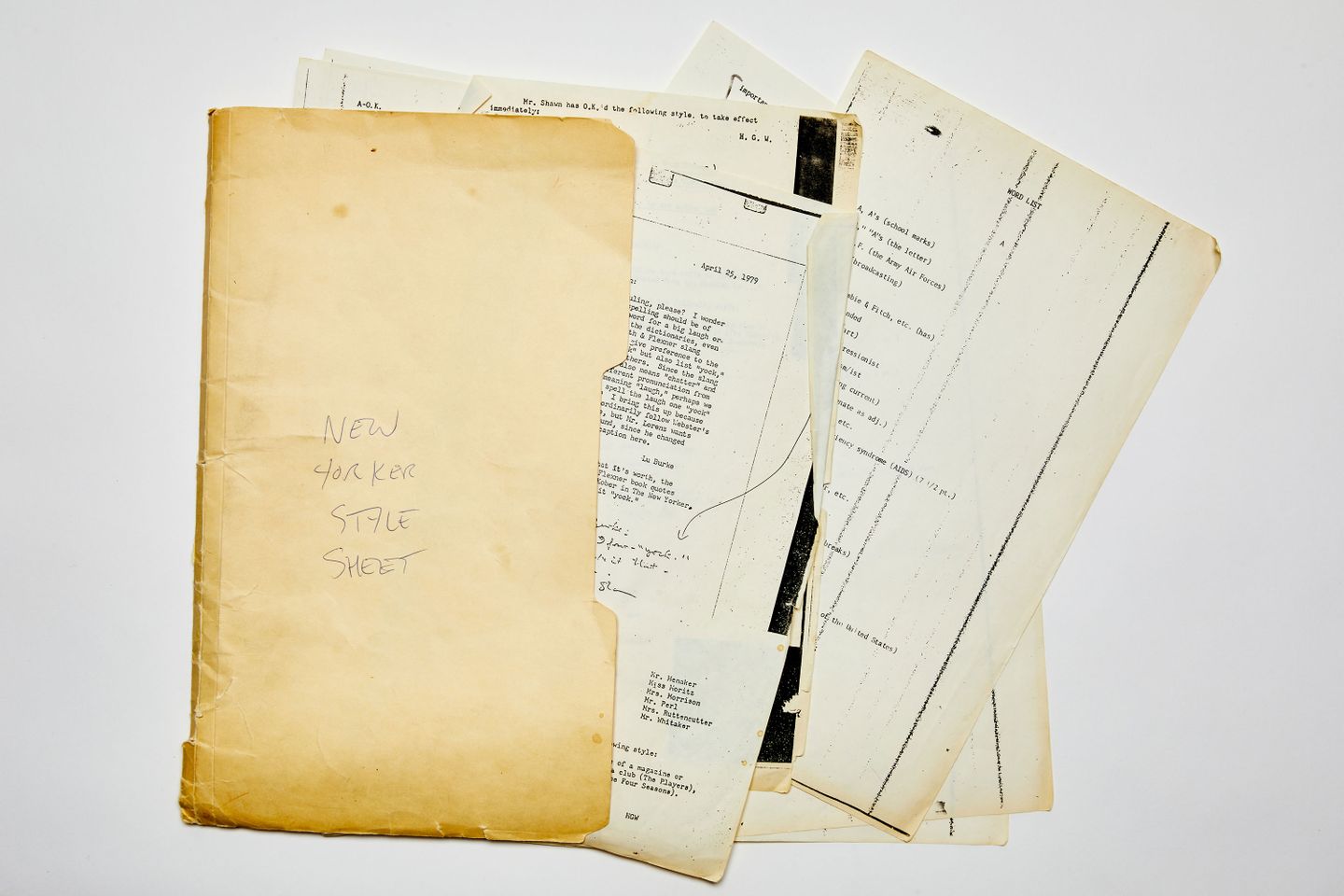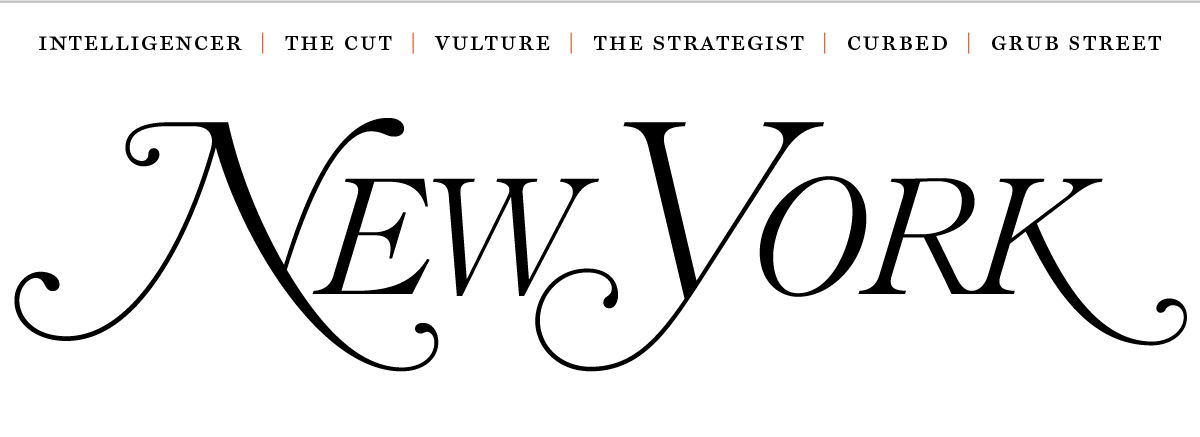 | ![A falling-apart copy of Webster's New International Dictionary.]() | | What’s your favorite dictionary? Photo: Marcus McDonald | | | | We received more than 100 submissions to the Queries reader hotline. Here, Carl responds to as many of your grammar and style questions as he can, as quickly and enthusiastically as possible, without his keyboard catching fire. |
| Jodie G., Leslie Y., Julie M.T., Helene H., and John asked whether they should use the Oxford comma. |
| Carl says: I adore the Oxford comma, though I call it the serial comma. It gives each item in a series equal footing. Not using the Oxford comma condemns the last item in the list to obscurity. Note that we always use the Oxford comma. Sort of wondering why our readers are worried about it. |
| Rachel E. asks: Over the last decade or so, some non-journalism fields, including mine (international development/humanitarian aid), have adopted AP style for technical materials, including research and project progress reports. The justification is that AP style is considered less wordy and more “punchy.” While I somewhat agree, I often find that AP style does not cover all of technical writing’s needs, including crafting citations. How would you explain AP style to those beyond the journalism field, and what is your perspective on AP style’s utility outside of journalism? Would you agree with my recommendation against AP style for technical writing? |
| Carl says: AP style is reactive. It’s all right for newspapers and 1988. For a lively model of technical writing, I recommend the Jack Reacher books, by Lee Child. A tall man, Child (not his real name) uses lean, spare prose for spatial description (including of a missile silo filled with Greatest Generation powdered amphetamine), and the former technical writer can fascinate anyone with a dramatic recounting of the specs of a flashlight or tire iron. |
| Jayne K. asks: I have heard the use of commas is changing. Is there a new rule? |
| Carl says: Open punctuation has been a thing for decades. Grammarians were up in arms about this in 1983. What we have is a mix of open and (old-style) closed punctuation. Where appropriate, we limit punctuation to mirror a conversational style, and we go with intent in quotations. It’s really about the mimetic level of discourse. |
| A number of readers wrote in with punctuation problems, including Jim B.: Apostrophes. Smiths’? Smiths’s? Smithses? I know there are rules, but they are confusing at best and sometimes contradictory — and occasionally there’s an either/or choice. Confusing … |
| … Bruce K.: Is it just me, or is the rampant misuse of the apostrophe a premonition of apocalypse? |
| … And Heather M.: How do I know when to do S and S-apostrophe. For example, would you write “Jeff Koons’s artworks” or “Koons’ artworks?” |
| Carl says: The Chicago Manual of Style has a great section on punctuation. I recommend that section to all new copy editors, and I’m sure it contains the answers you seek on styling to show possession, which seems to be the specialty of friends of Mr. Smith’s. |
| Jordan M. asks: I mention many book, movie, and television titles on my website. In school, we were always taught to put these in quotations. In the early 2000s, I started thinking that quotations around titles looked clunky online. So I started using the ′ symbol instead (I’m not even sure what it’s called). In other words, writing ′Sex and the City′ instead of “Sex and the City.” (I was sure I was breaking some kind of rule.) Last week, however, I noticed that the New York Times also uses the ′ symbol. New York Magazine, however, uses italics for titles with no quotes or symbols. So which one is it? Does it matter? What is the difference between quotes, italics, and the ′ symbol around titles today? |
| Carl says: Our magazine uses italics for titles of books, movies, and paintings, among other major works, and quotation marks for the titles of shorter works, such as songs, short stories, and short-term exhibitions, such as a gallery show. Newspapers use quotes for everything. The symbol you reference, the prime, should be used only by Captain Kangaroo for navigation. |
| |  |
| Molly H. asks: I am not a formally trained copy editor, but my day job involves a great deal of drafting and editing correspondence, and so I pride myself on a good layperson’s knowledge of spelling and grammar and a keen eye. I have been making a repeated correction in the past month or so that has been (to borrow a phrase) driving me up a wall. How does one properly use the verb “inform” in a sentence, i.e., am I correct that it should be followed by a noun or pronoun? I have been encountering, for example, drafts reading, “I regret to inform, Jane is unable to attend.” I am editing it to, “I regret to inform you that Jane is unable to attend.” But since I am repeatedly encountering the former version, I wonder if I am not as informed (sorry) as I would like to think, and that I am the incorrect one. I would love some expert advice on this. |
| Carl says: This is reverse-AI language. Someone typed in “I regret to inform” and the autofill failed to complete the sentence. People are just typing in a few letters and hoping for a hit. |
| Mary S. asks: I am an artist and made a print that said “I wish I was innocent.” I agonized for days over was or were. What is your opinion? Thanks. |
| Carl says: I would ask for a print of this, were it not unethical to do so. |
 | ![A beat-up copy of the New Yorker's style guide.]() | | The purloined New Yorker style guide. Photo: Marcus McDonald | | | | Nancy M. asks: Singular or plural when referring to a team? I always thought that a team, while made up of many, was considered one entity to be referred to in the singular. I hear almost exclusively sports reporters and commentators referring to a team as a plural. For example: “The New York Mets are a team to be reckoned with.” I would think it should be “The New York Mets is a team to be reckoned with.” Would love some clarification on this. |
| Carl says: This was covered in Queries on Wednesday. Sports are different. (See also The Sportswriter, by Richard Ford.) |
| Sarah B. asks a marital question: I admire precision in writing, along with metaphors, references and examples. And please give me context, speakers and writers. My problem is my husband. He’s German, although he has been a US citizen for a lot longer than he lived in Germany. He’s truly brilliant … with numbers. The older we get, we are having difficulty communicating about locations. When he describes a location I rarely understand his directional references. For example, he often uses the term “back there” when the location is in front of us. When I start asking questions (I’m a retired lawyer), he gets frustrated. And we end on the sour notes of his frustration and my confusion. What’s a wife to do? |
| Carl says: Agree to a personal code name for each of the four winds of heaven before embarking on a journey together. |
| Helene H. asks: Who vs that. I was always taught who was for people, that for things. John is a boy who I know. I took the cat that I found to the vet. Am I misremembering? |
| Carl says: You are correct. Impossible to correct for this in quotations, however, and it’s the rage right now. |
| Lauren S. asks: Books and journals often omit spaces before and after an em dash, but most journalism in magazines and newspapers do utilize spaces. What’s your take on this? When is or isn’t it appropriate? And, can one use an em dash too often? Inquiring minds want to know how to use it. |
| Carl says: Open secret: Space is added around em-dashes online because it is nearly impossible to avoid bad breaks when words are “attached” to the dashes. In print, it is easier to avoid bad breaks, so we close up space around em-dashes. |
| Laurie P. asks: As a 63 year old veteran of journalism school (UNC 81) who went into PR/advertising in the 80s, then into my own marketing career, then a nonprofit, how do you think the written word has changed? Are we better at it because of the internet or worse? Will the multiple misuse of your or their ever change? Will my last use of my brain be ‘damn that’s a typo’? Anyway best wishes. |
| Carl says: I visualize last thoughts that I can live with, knowing they will likely be borne away on wings of song (i.e., an earworm from pop radio) regardless of my wishes. Working backward, I can tell you that the internet has kept us literate, though off the royal (real) road of learning, which is fine. And your advertising work has done a lot of good. |
| Heather T. asks: What is happening to “comprise”?! I’m reading a book right now, from a decent publisher, and have already run into two sentences in which a bunch of individuals are described as “comprising” a collective. Is this just a lost cause? |
| Carl says: Complained about it in Queries yesterday.
|
| Bryan C. asks: Maybe I’ve never known, but when is it “who” and when is it “whom?” And something that drives me up the wall is “as per our conversation,” isn’t it just “per” or are they interchangeable? |
| Carl says: If you can replace whom with him, you’re searching where I am. And it’s just per. People put on airs. |
| Susanna S. asks: Lie v Lay. Why do so many people — including educated leaders — confuse these 2 verbs? It drives me crazy! |
| Carl says: Test for lay by replacing it in your mind with place. If it works, you’re golden. |
| William T. asks: In your opinion, has “careen” evolved to the point where it has pretty much displaced “career” as a word to define moving swiftly but erratically in one direction? It seems to me that “careen” at one point was used exclusively to mean the tipping of a ship to remove barnacles and perform other repairs on a ship’s hull. Nowadays, career is hardly ever used. |
| Carl says: When editors want to use careen (a word no one ever says aloud to friends) instead of career, I ask them if they have advanced in their own careen. |
| Katharine W. asks: Why oh why has the word clichéd started to vanish as more people say and write “very cliché” or “so cliché” — this sounds quite wrong and awkward to my ear. What do you think? |
| Carl says: I am of the Devil’s party on this question. |
| James K. asks: What is your position on the gerund? Some respect it as a noun. Others do not. |
| Carl says: This is a setup, right? For jokes about the inging? |
| Carolann R. asks: Do you have any quick, easy, obvious (even) transition tips and tricks? |
| Carl says: It’s hard work to get a transition right, and I respect that. To point out the lack of one isn’t always fair — suggest wording based on the direction of the paragraph that needs help. But don’t rely on a formula. |
| Ethan W. asks: A question: in a journalistic context, how do you feel about beginning paragraphs with questions that you immediately answer? My editor thinks it’s a lazy habit one should avoid — just make your point without the question. |
| Carl says: I see what you did here — you led with “a question” and then asked one. That’s like asking “Can I ask you a question?” and you already did. The answer to any question in display text or the opener might simply be “no,” so don’t ask — tell a story instead. |
| Jill R.L. asks: What do you recommend for email sign-off? I hate “Regards.” |
| Carl says: How about “Thank you for subscribing to New York Magazine”? |
| Bev F. asks: My mom was born in 1925, and died in 2018. Nothing irritated her more than to see a grammatical error on an announcement or pronouncement, posted in a doctor’s office or any other place. She always pointed out the error to the people responsible, and always in a loud voice, since she was almost deaf. I find myself noticing the same errors today but unlike my mother, I don’t lecture the receptionist employees, just sit quietly until I can move along. Is this an example of the difference between a member of the Greatest Generation and a Boomer? An interesting theme to explore in your Newsletter! |
| Carl says: I am fascinated by the idea that one’s start date can have such an effect on one’s priorities. Do you think a future start date might lead to a risorgimento of the lecturing of people who likely had nothing to do with the creation of their office’s signage? I hope this reflection meets your criteria for exploration. |
| Gigi S. asks: Tell me how to react to people who say irregardless! |
| Carl says: I tell them to charge me a dollar if they find an unself-conscious use of the imaginary term in question in our magazine, websites, or newsletters. |
| Jill G. asks: Why do we pronounce the word ‘through’ the way we do? There is no word that is pronounced with the “ough” as “oo”, other than the word ‘slough’ (and who really uses that word anyway?). Rough, tough, slough (as in skin), enough … UFF; cough, trough … OFF; thought, ought, bought … AHHT. |
| Please enlighten me! I’d love an expert’s opinion on this. |
| Carl says: Arise from the slough of despond! I make no claims to expertise in poesy. As a copy editor, I find it best to worry about picking the best possible word in the sense of meaning rather than pronunciation. When I refer to sound, I mean how words fit together, whether said or sung. |
| Carol M. asks: I am very interested in the rules and grammar of alt text, the text you add to images online to help with accessibility. But how detailed should you get? I don’t describe people’s race when I am alt texting. Am I hindering peoples’ ability to properly “see” the photo? And did i just do the plural of “people” correctly? Thanks! |
| Carl says: I would use people’s outside ethnographic studies. I have never created alt text, and I only learned what it is back when Jerry Saltz discovered it on social media. I am partial to TV subtitling and enjoy the mad errors generated by the snappy patter of Gary, Keith, and Ron in the SNY broadcast booth. |
| Andrew B. writes: An experienced copy editor is better than chat GPT will ever be. Discuss. |
| Carl says: It’s ChatGPT, I believe. And it will never be able to figure out where to add hyphens in a sentence like “Twenty first century scribes copied out the holy scrolls.” |
| Do You Think Like a Copy Editor? |
| Thanks for playing along this week! Here’s the answer to yesterday’s newsletter. |
| The hyphen in the first sentence should be deleted — that’s a routine style fix when you spot one used after an adverb — but then you’re left with the extremely extreme adverb extremely telling you how amicable amicability can be. You’ll get copy-editor cred by cutting not only in the second sentence (it doesn’t qualify the action, so there’s no place to add but also). I might also point out that parted sounds repetitive (it echoes parting). Then you can tackle the gold-copy-star issue here: the comma splice. Once you see that, you’ll realize there’s no saving this as structured. I want to condense the whole thing to something like “They parted as friends,” but did they really part if “they continued to see each other”? And what’s up with that vague prepositional phrase “on a regular basis”? It smacks of patent medicine. Are they sentient, social, self-regenerating vitamins that meet up once a day in someone’s colon? |
| Thanks for reading along with Queries this week — we just might pop up in your inbox again at some point in the future. If you have feedback on this series, please fill out this one-question survey. And if you haven’t yet, click here to sign up for our next subscriber-exclusive newsletter: Succession Club. Every Monday, we’ll be breaking down the biggest moments and most shocking twists from last night’s Succession episode with writers and editors from across the magazine. |
| | | — Carl Rosen, New York Magazine |
| | |



